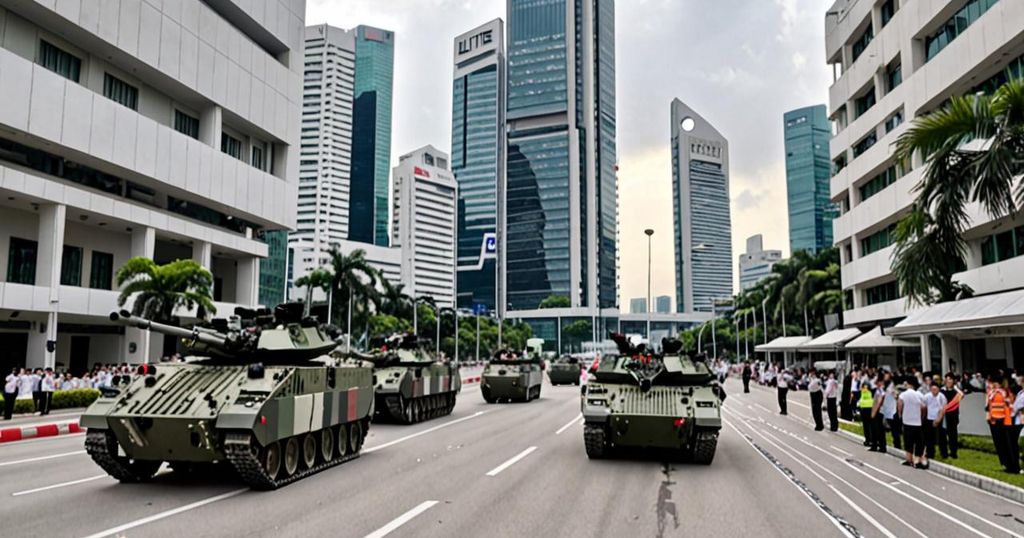In recent weeks, there has been a notable and public discussion among Singapore’s esteemed members of society regarding the ongoing Israel-Gaza conflict. As the public navigates the difficult balance between expressing their emotions and adhering to government measures to preserve social harmony, Singapore is confronted with a sensitive juggling act.
Despite the government’s efforts to manage public displays of empathy or frustration towards the conflict, many Singaporeans are contending with a range of emotions, from distress and sadness to indignation and, in some cases, optimism. There is a prevailing belief that these expressions are being stifled, contributing to a sense of restlessness within the population.
While the government is striving to uphold social order and unity, individuals such as 26-year-old civil servant Matthew acknowledge the complexity of the situation. He recognizes that religion does not always lead to rational decisions and can easily spark conflict, thereby complicating the facilitation of rallies and protests without deepening societal division.
This sentiment is echoed by academics who caution that suppressing pent-up emotions may potentially lead to internal tension. Political scientist Chong Ja Ian from the National University of Singapore stresses the significance of providing avenues for voicing concerns and frustrations in order to prevent the escalation of tensions.
Surprisingly, the government has permitted a range of viewpoints to be openly expressed, diverging from the typical unified stance of the political elite. Foreign Minister Wong has reaffirmed Singapore’s support for a two-state solution in the conflict, underscoring the country’s principled stance in accordance with international law, global peace, and security.
However, calls for the government to adopt a different approach have intensified, with petitions urging the cessation of diplomatic relations with Israel and clandestine gatherings gaining traction on social media. Despite the pressures, the government has sustained its connections with the Palestinian Authority, highlighting its precarious position in managing international relationships amidst growing domestic dissent.
The public discourse on the Israel-Gaza conflict has led to a rare exhibition of disagreement among Singapore’s elite, reflecting the difficulties faced by the government in formulating a unified standpoint on the matter. Former parliamentarian Inderjit Singh proposes that the government is torn between condemning terrorist assaults while also addressing the indiscriminate violence against civilians.
The diverse perspectives within the elite also illuminate the range of opinions in Singapore, emphasizing the importance for citizens to appreciate differing viewpoints and engage in constructive dialogue. As the country continues to determine its stance on the conflict, the preservation of racial and religious harmony remains a primary concern for authorities and individuals alike.
Despite the restrained nature of the discussions within Singapore, the government has successfully achieved a delicate equilibrium, furnishing safe forums for discourse while articulating the country’s position clearly in parliament. While these measures have been acceptable thus far, the potential for escalating tensions in the Middle East may present significant challenges in the future.
As Singapore grapples with the implications of the Israel-Gaza conflict on its domestic and international relations, the government remains focused on navigating the fine line between upholding social cohesion and permitting its citizens to engage in valuable conversations. Each passing day brings fresh insights and challenges, compelling Singaporeans and the elite alike to contemplate the complexities of the ever-changing global landscape.
Source:
Authoritative Source Name 1
Authoritative Source Name 2

Leave a Reply